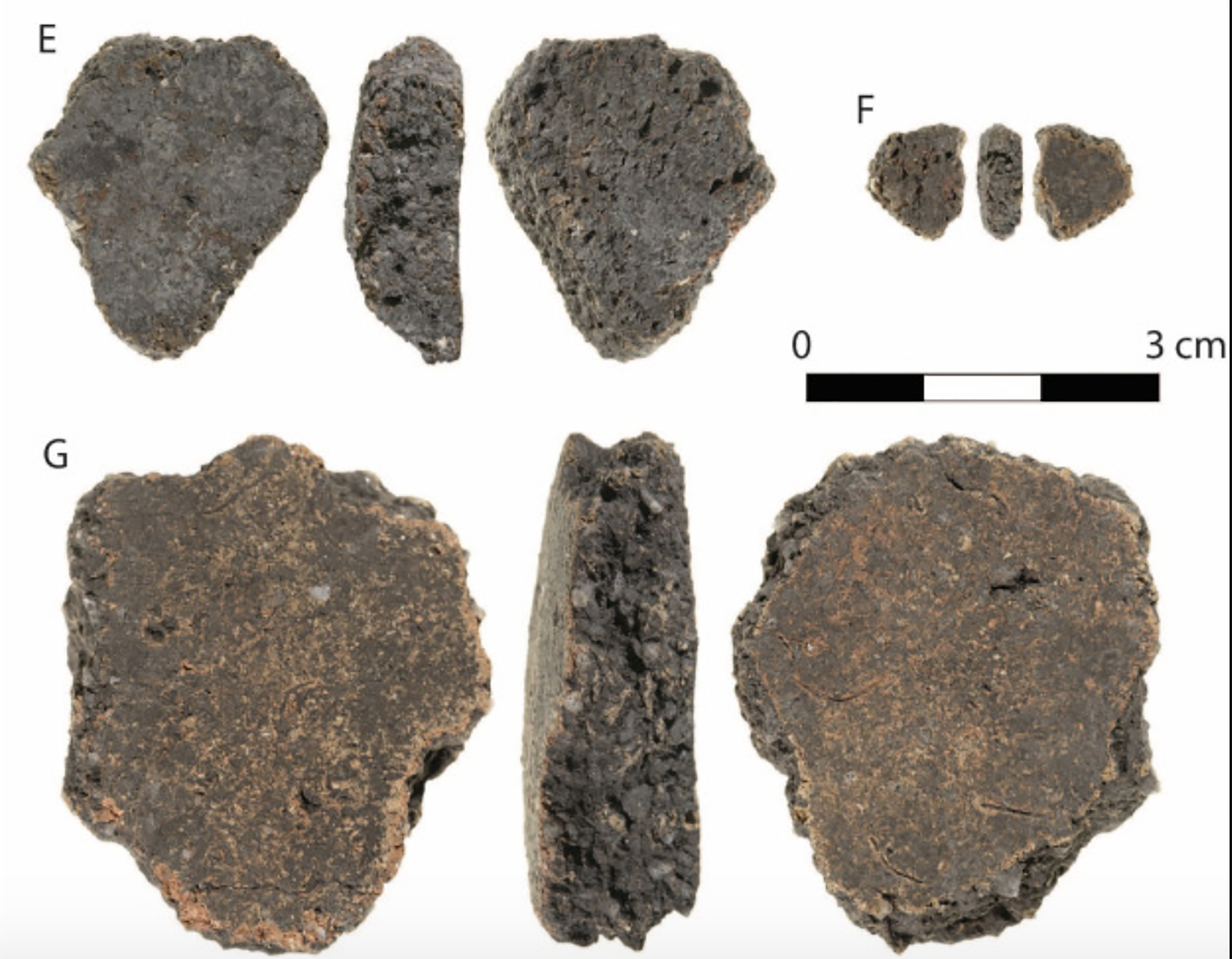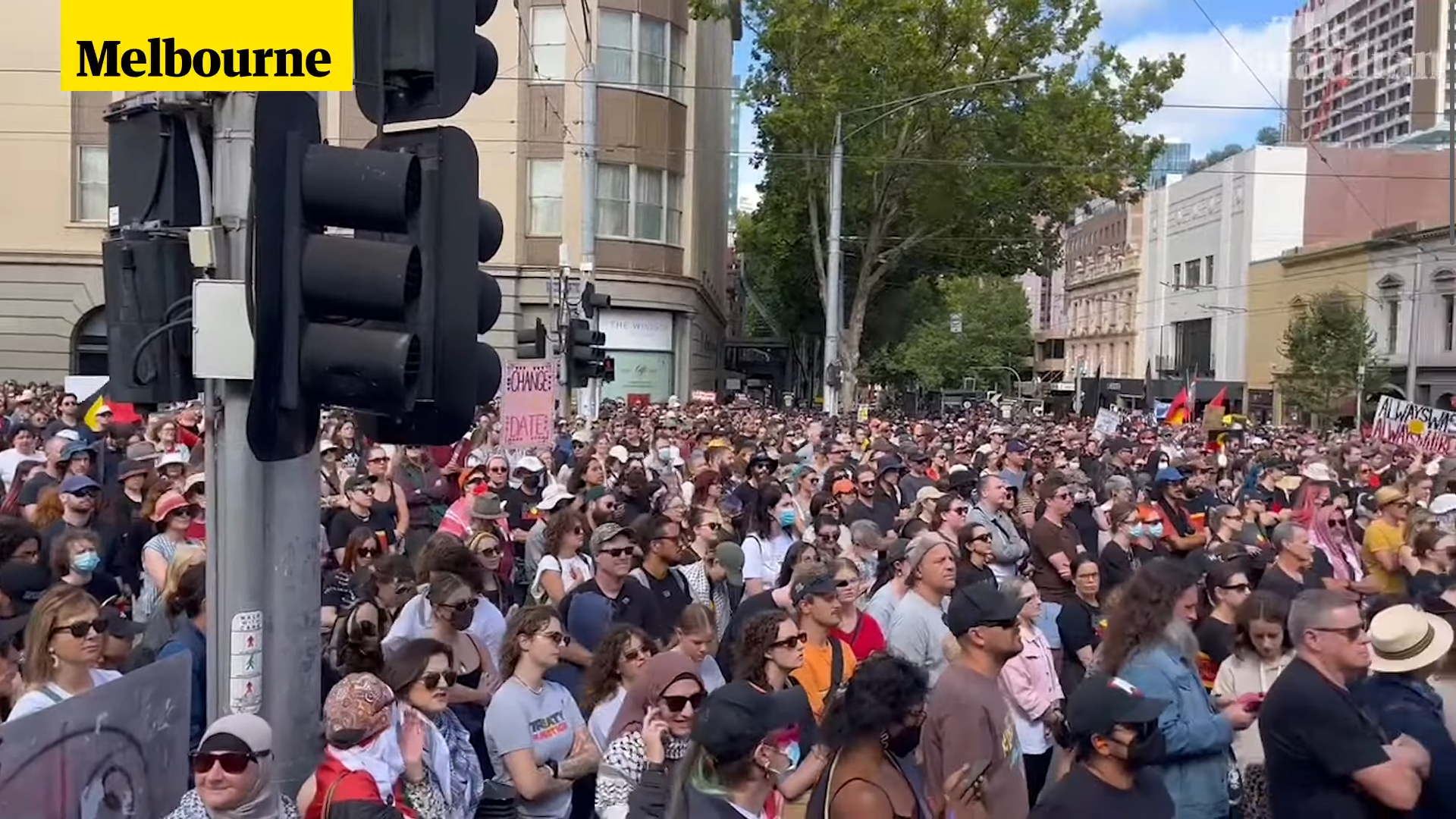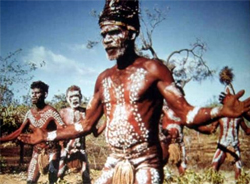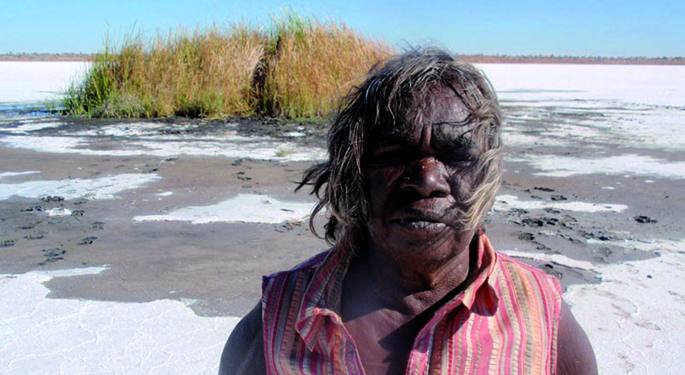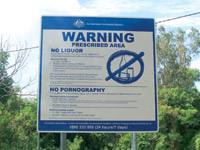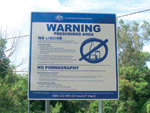"The history of oppression is important for all Australians, not just for Aboriginal people."
- Linda Burney (1957) is an example of courage. Her mother was white and her father was Aboriginal and was born in a small white rural village, at a time when blacks and whites were forbidden to mix in Australia. He has dedicated his life to politics and made history twice: In 2003 she became the first Aboriginal parliamentarian of the Government of New South Wales, and in 2016 she became the first Aboriginal woman of the Australian Parliament.
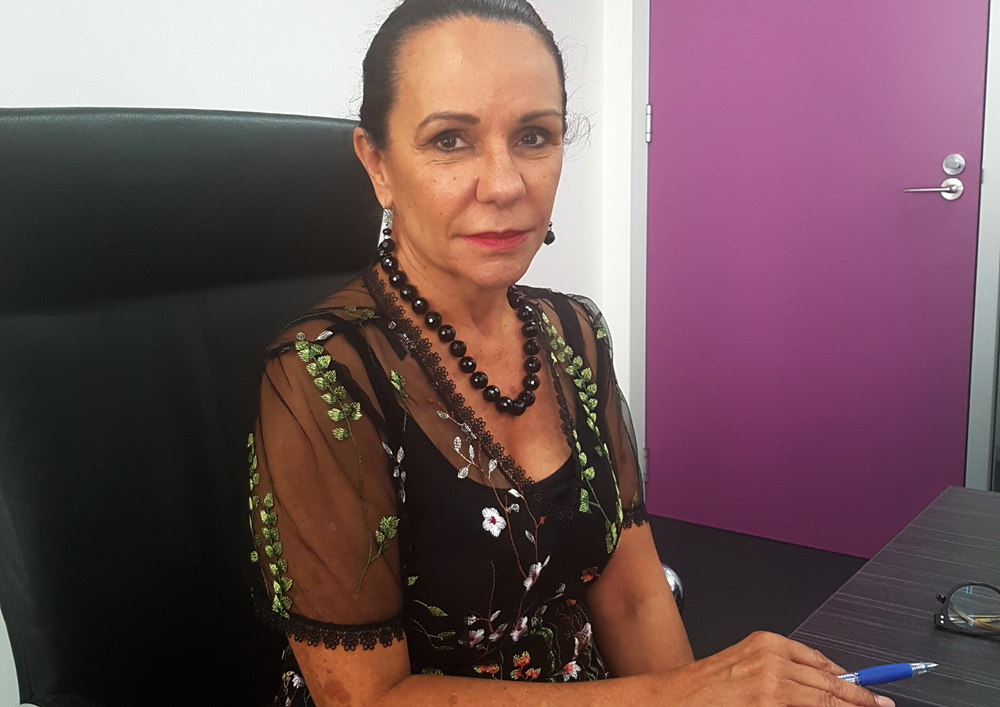
They frighten the actions of the British with the Australian Aborigines. Colonization was a bloody genocide, and on the island of Tasmania, for example, everyone was killed. Culture, language and beliefs were also completely eliminated.
The colonizers were very savage with the natives. It was a complete invasion, not a siege. I belong to the Wiradjuri Aboriginal community, and our community was the first to suffer British colonization. Due to its resistance, it was there that the War Act was applied for the first time in Australia in 1923. In these lands the water was also poisoned to kill the population, but the biggest killer was certainly the one who introduced diseases: illness of small teeth, cold, flu... Aborigines didn't know about these diseases and didn't know how to deal with them; it was a tremendous plague. Although it happened 230 years ago, the consequences remain the most unfair. Indeed, the cruel policies that have been pursued following the invasion have caused the same pain as colonization, such as the abduction of Aboriginal children.
“The generation of Thestolen.”
Between 1900 and 1970, thousands of children were stolen by the British, and this is recorded in the official documents that have echoed it. They believed that Aborigines wouldn't survive long, and so they kidnapped the whitest children from the Aborigines and handed them over to the whites, arguing that it was to save the children. Many of these children were subjected to mass abuse in their host homes. Colonization was frightening for all, but even more terrible for parents and children, who could not separate from their relatives and reunite. Many of them leaked in alcohol and drugs.
“The cruel policies used after the invasion have caused the same pain as colonization, such as the kidnapping of Aboriginal children”
Didn't those kids come back with their families?
Some yes and others no. Many of these children are still alive, as this policy was not entirely over until the late 1960s. And the right to education, for example, was the first time that Aboriginal people had the right to education in New South Wales in 1972. In addition to the years of colonization, the painful policies of the coming years have brought much suffering.
At the same time, the harsh immigration policies were over.
Yes, in the early 1970s. Until then, Indians had been banned, for example, from accessing Australia, through opaque tops.
On the other hand, between 1952 and 1963, the British conducted 12 nuclear tests on land inhabited by Abori
genes.Las tests were conducted in southern Australia, in the village of Maralinga. My stepfather was in the Australian Army and participated in those nuclear tests. At that time, adequate protective clothing was not used and the members of the army suffered throughout their lives from illnesses resulting from the tests, including my stepfather. As for the Aboriginal, he told me the horrors: they were not properly informed of the tests and they were not taken out of the field of tests, they were not taken to safe places. The effects of the tests on the local population, blindness and other illnesses can still be seen. The British, of course, deny it and are not responsible; they have not paid any receipts or cleared any land.
Is all this sufficiently known at the international level? At the
national level, not enough is known… Spain, the United Kingdom, Germany, France, Belgium… They have all been colonizers. There is nothing else to do with the cases of South America and Africa. In the case of Australia, the French were also trying to colonize and similar brutalities have been carried out in all the countries that have been colonized, leading to the disappearance of entire cultures, languages, lands and peoples. They tried to destroy the identity of the natives and impose their own, destroy the sacred places and impose their religions. Most of the Pacific islands were filled with churches, in the name of evangelization. But in all cases, the indigenous culture has somehow managed to survive; it has changed, it is different, but we maintain our indigenous identity and that identity is the tool to survive as a people. On behalf of my mother, I have Scottish ancestors, but I identify with the people of Aboriginal people. It is very important to understand what identity is to understand the effects of colonization.
“Indigenous culture has changed, it is different, but we maintain our indigenous identity and that identity is the tool to survive as a people”
How do you learn this part of the story in schools in Australia?Much work has been done to introduce into the curriculum the subject that works the point
of view, culture and life of Aboriginal people. In addition, more and more schools are celebrating Aboriginal National Week and more and more schools are on the doorstep of the official Australian and Aboriginal flag. All of this is essential, because many young people know the true story thanks to school. Slowly, the situation is changing and more and more people see British colonization as an invasion.
And have you ever been charged with these crimes of genocide against your Australian?
There have also been a number of accusations and trials, but only a few.
Australia Day is celebrated on 26 January. Like every year, many street demonstrations were also held this year, calling for this celebration to be relocated to another date. In
my opinion, it is not the day of celebration, nor is it the day that unites the Australians. That day remembers the day when New South Wales was colonized, and many Australians do not live that day as the nation's creation, but we link it to the suffering of Aboriginal people. This year, moreover, there are local authorities that have decided not to celebrate it. It is a day when we have to reflect and remember the truth, and more and more of us think that way.
“My mother was white and my father aborted, I was the result of an extramarital relationship and my poor mother had to flee the village. My father had no news of my birth.”
Your personal story is also special. You were born in a white village, at a time when it was forbidden to mix blacks and whites. What childhood did you have? My
Scottish mother's uncles greeted me to avoid the host house, a courageous decision on their part. They were brothers 65 and 70 years old and I was very well educated. My mother was white and my father aborted, I was the result of an extramarital relationship and my poor mother had to flee the village. My father, for his part, had no news of my birth and at the age of 28 I managed to get in touch with them. And what a surprise when I knew I had ten brothers! I've met everyone and I have a particularly close relationship with a brother. I grew up and was very loved with very strong principles and values, but I always felt that I lacked a part…
You spent five years looking for your father.
Yes, it was very difficult and in the end I found it, but it has been very common for Aboriginal people. Several children of the stolen generation have sought their relatives. At that time, we experienced terrible racism, brutal rejection of Aboriginal people and the truth. He was 10 years old when the 1967 referendum was held.
It is precisely then, following the referendum, that you became an Australian citizen, as you said. What exactly was decided in that referendum?
The question in the referendum was as follows: “Should Aboriginal people be taken into account?” In other words, they were accepted as citizens of Australia and recognized on national issues, because until then we did not appear in any national document. Aboriginal people were not considered real people. In the referendum a yes was imposed and the Aboriginal Affairs Department was established within the Government.
“We are doing a great deal of work to ensure that everything is not seen from a negative point of view and that we are also aware of the steps and achievements we have made for the coexistence between abortions and whites”
You have often said that apartheid has existed in Australia.
It was a kind of apartheid. Aboriginal people were forced to live in the desert, while white people lived in the villages. Aboriginal boys and girls were only educated up to the third grade and teachers were not sufficiently prepared. Our life was controlled by the Australian Government, where we could go, what we could do, who we could marry... Thousands of children were kidnapped, we were banned from speaking our language, from practising our culture and our customs. In order to get out of the Aboriginal neighborhoods, we had to get a document, a kind of passport with photos, and it specified the percentage of blood you had. The same is true in order to continue or work with the studies.
In 2003 she was the first Aboriginal parliamentarian in New South Wales and in 2016 the first Aboriginal woman in the Australian Parliament.
It was a moment of great pride and joy for the indigenous community. I am often asked to take part in aboriginal issues, although I have not been particularly elected to do so, but to represent the Barton region in parliament. But I'm aware that people don't simply choose you, but because of your trajectory, because of the work and the behavior that you've done, and my voters have been mostly the Aboriginal community and the young white Australian women, so I'm going to work especially hard to ensure that their rights are respected.
What is the current socio-economic situation of Aboriginal people? Are there laws to protect your rights and your culture? We must take account of many paragraphs of the legislation, on the one hand those
of each State and on the other those of the Federal Government, for example those relating to land rights. But there is a specific law for all of Australia that protects culture, religion, language and spirituality.
Looking to the future, are you optimistic?The situation is changing a lot, Australians are increasingly aware of the horrors that have occurred
and that is important, because being aware of the situation of the Aboriginal. The history of Aboriginal oppression is important for all Australians, not just for Aboriginal people. We are a singular country, a people who have suffered human occupation throughout history, longer than anywhere else. However, we are making a great effort to ensure that everything is not seen from a negative point of view and that we are also aware of the steps and achievements we have taken to coexist between abortions and whites.

Members of the James Cook University and the Research Council of Australia have discovered ceramic fragments from 2,000-3,000 years ago on the island of Jiigurru in northwestern Australia. These are the oldest ceramic remains discovered so far in Australia. The geological study... [+]
Lepoa eta eskuak aulki bati lotuta eta burua estalita duen nerabe bat ageri da bideoan. Ikerketa abiarazi du gobernuak, Malcolm Turnbull lehen ministroak aginduta, The Guardianek jaso duenez.
National Geographic aldizkarian Australiako aborigenei buruzko foto erreportaje ederra egin dute. Uhartean 50.000 urtez bizitu arren, egun Australiako biztanleen %3 baino gutxiago dira. Beren kultura, bizimodua eta mundu ikuskera pixkana desagertzen ari dira. Hala ere, egun... [+]
250 inguru ziren XVIII. mendean Australiako aborigenek hitz egiten zituzten hizkuntzak. Gaur egun 100 dira bizirik dauden hizkuntzak, eta gehienek oso hiztun gutxi dituzte.
Albiste susmagarriak iritsi ziren berrikitan Australiatik: aborigen jendeen artean haurrei sexu gehiegikeriak erruz egiten zaizkiela jakin eta agintariak neurriak hartzen ari omen direla. Albiste horren sustraian dagoen kolonialismo istorio iluna argitu nahi izan du John... [+]











